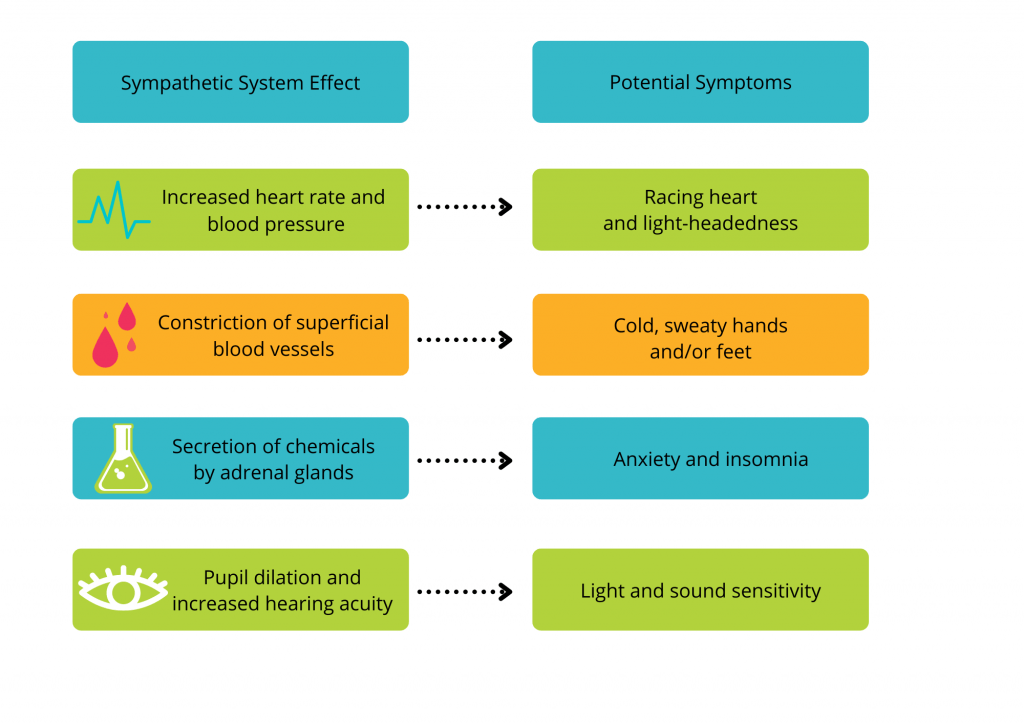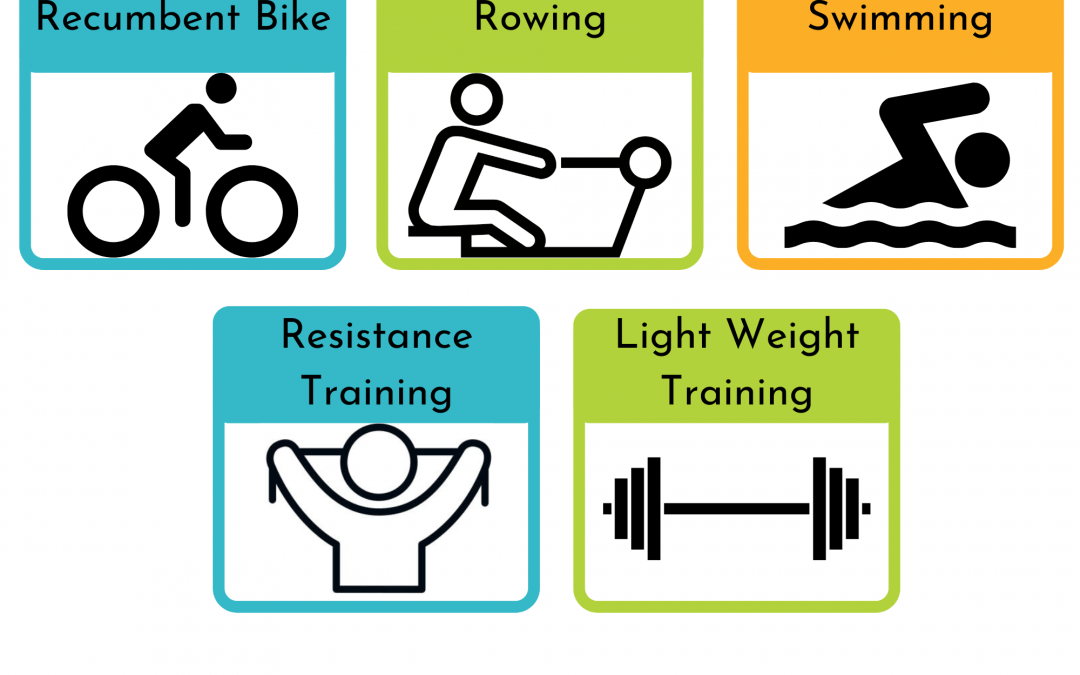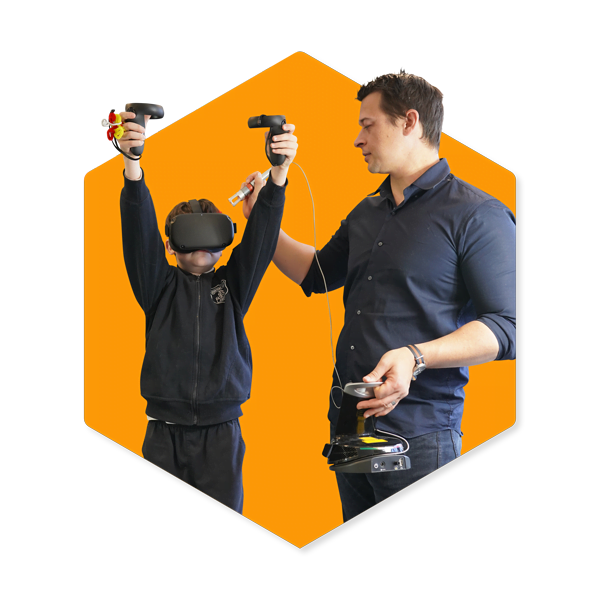Postural Orthostatic Tachycardia Syndrome (POTS) is a neurological condition which affects the autonomic nervous system. Within the autonomic nervous system are the parasympathetic and sympathetic systems which work hand-in-hand to regulate all the automatic processes within our body.
The sympathetic system is responsible for maintaining blood flow to the brain when standing. It increases the heart rate whilst constricting the blood vessels to achieve this. The parasympathetic system monitors the sympathetic activity to ensure the heart rate and blood pressure remain at a normal state.
POTS causes these systems to break down and the sympathetic system to become overactive, which results in a person’s heart rate to increase significantly whilst in an upright position. People with POTS will see a 30 beats per minute increase to their standing heart rate compared to their heart rate whilst in a supine (laying down) position. This change in heart rate causes symptoms such as dizziness, headaches, light-headedness, fatigue, and nausea.
POTS often develops as a result of physical trauma and can present in people post-concussion. People with Post Concussion Syndrome (PCS) and who develop POTS as a result can experience damage to areas of the brain connected to the sympathetic system. This damage may affect the cortex (the brainstem where the parasympathetic centres are located) or sometimes the cerebellum.
Symptoms of POTS


